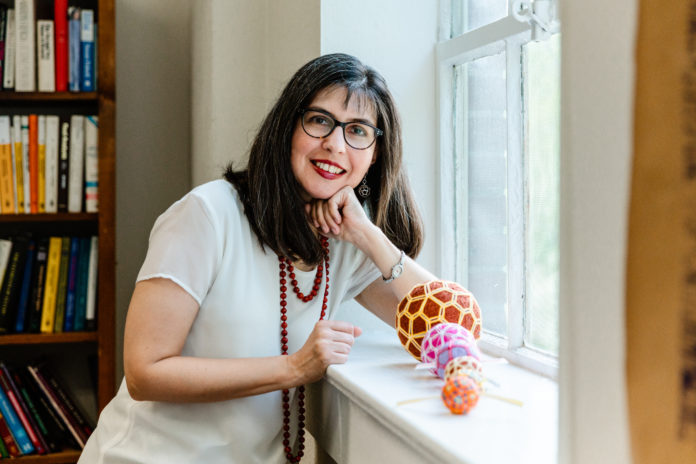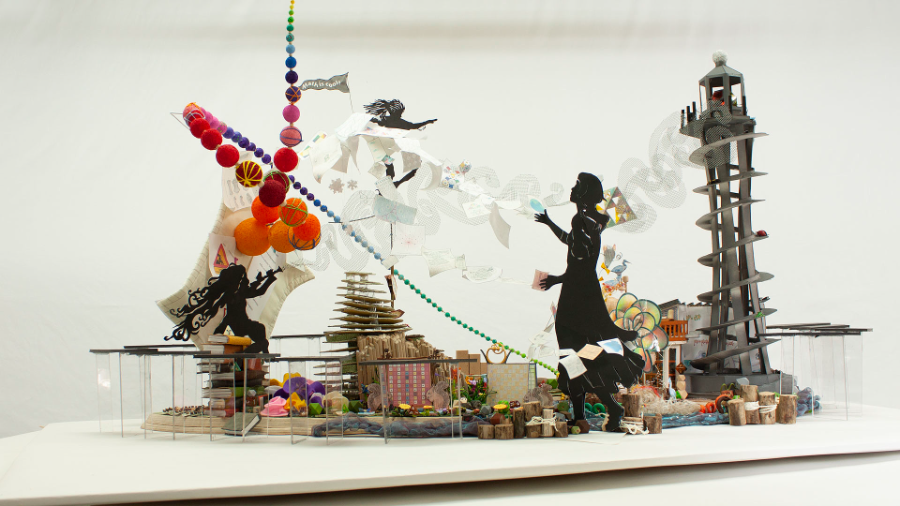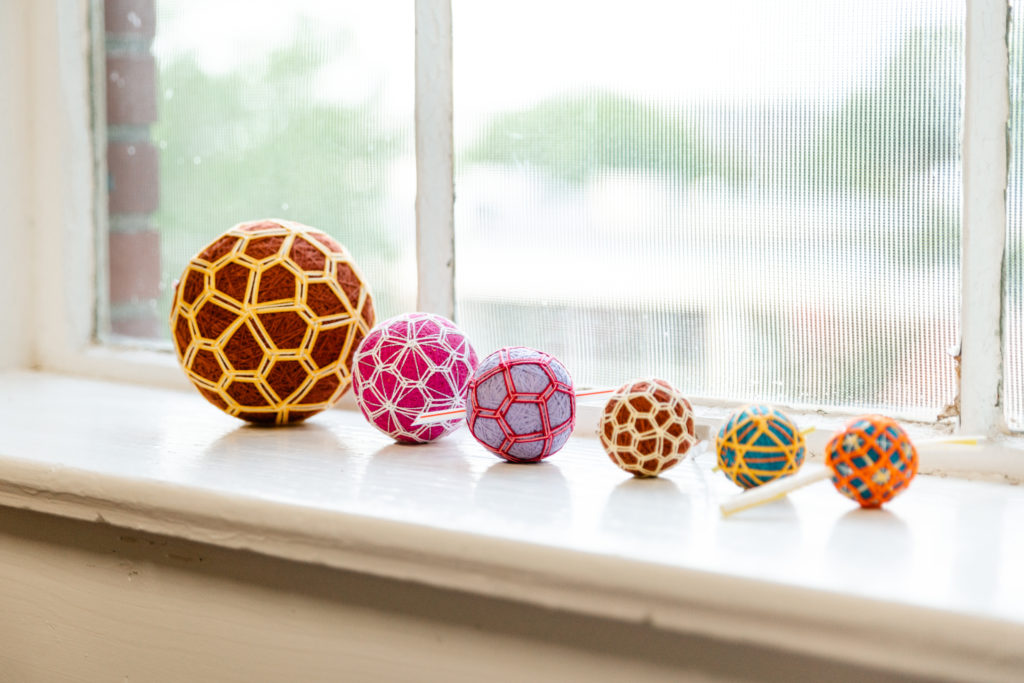
When Dr. Carolyn Yackel isn’t teaching mathematics, she’s often using math concepts to create art. She’s been a Mercer University professor since 2001, around the same time she started exploring her interest in mathematical art.
For the past year and a half, she’s been involved in a large-scale, group art project out of Duke University called “Mathemalchemy.” Most members of the team of 24 artists will be in Durham, North Carolina, this month working on the installation, which should be completed by the end of July.
Mathematical art involves “knowing a mathematical concept and using that to inform art, or having an artistic concept and using mathematics to inform that art,” Dr. Yackel said. For instance, she uses math elements to create intricate patterns for needlework pieces called temari balls, a form of folk art that originated in Japan.
Dr. Yackel is mainly a mathematical fiber artist and has edited three books about this art form.
Her artwork includes knitting, crocheting, digital art, laser cutting and Shibori dyeing, but her portion of the Duke project is dedicated to temari balls.
“Mathemalchemy” is the brainchild of fiber artist Dominique Ehrmann and mathematician and physicist Dr. Ingrid Daubechies, who invited Dr. Yackel to join the project. Dr. Yackel, a fan of Dr. Daubechies’ work, had heard her speak at conferences a few times and knew that a collaboration with her would be amazing.
“We had reached out to (Dr. Yackel) to include her beautiful temari balls into the first maquette (model), and she was open to the idea right from the start,” Ehrmann said.

The 3D art installation will be 20-feet long by 10-feet wide, Ehrmann said. Visual depictions include a lighthouse, books, flowers, the sea, the silhouette of three people, and two ball arches, among many other vibrant and elaborate elements. All of the pieces are now completed, and assembly is underway.
“It is super interesting. It is so big and intricate. It has been so fun to work on because there are so many people working on it,” Dr. Yackel said. “I’m learning a lot more about art, how artists work, how they put things together and how they think about things. That’s been really fun.”
Dr. Yackel has been in charge of the ball arches and, with the help of two other people, created 120 temari balls that vary in size, color and pattern. The smaller arch contains 20 visible spheres and uses the mathematical concept of a convergent sequence: the successively smaller diameters add up to a finite total length. The larger arch, on the other hand, is a divergent sequence, which has no limit, and flows into the sea to represent that it will keep going on, reaching infinitely far.
She finished embroidering her last ball on June 28, arrived in Durham on July 4 and will assist with the installation for 10 days.

“Mathemalchemy” will remain at Duke until the end of November and then be showcased at the National Academy of Sciences in Washington, D.C., from Jan. 15 to May 13, Ehrmann said. The team is in discussions with other museums, universities and math-oriented organizations to display the art piece in additional locations in the United States and Europe.
After “Mathemalchemy” has finished its tour, it will return to Duke and live in the math department, Dr. Yackel said.
Dr. Yackel feels grateful to be involved in this project and to have her research interests in mathematical art supported by the University.
“I am very fortunate to be working at Mercer because not only the University but my department reflect my interdisciplinary work,” she said. “There are not a lot of places where I would have been able to do that.”









